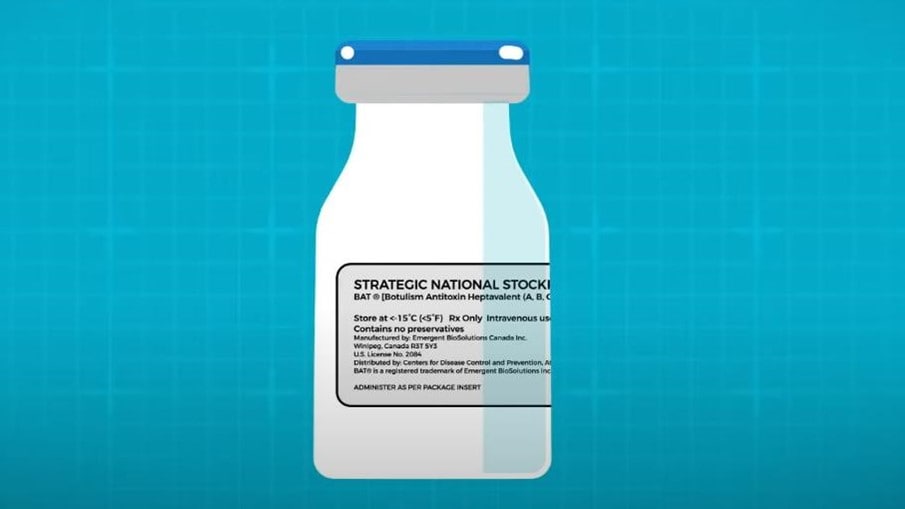Key points
- Botulism is caused by a toxin that attacks the body's nerves.
- It is treated with antitoxin.
- Antitoxin prevents the toxin from causing more harm. It does not heal damage the toxin has already done.

Why treatment is needed
Botulism is caused by a toxin that attacks the body's nerves and paralyzes muscles. Botulism can lead to difficulty breathing, muscle paralysis, and even death.
Many people with botulism need to be hospitalized. The medical and nursing care you receive in the hospital is to help you recover.
The paralysis caused by the toxin usually improves slowly. Some people need to stay in the hospital for weeks or even months before they are well enough to go home.
Treatments and interventions
Antitoxin treatment
Botulism is treated with antitoxin, which prevents the toxin from causing any more harm. Antitoxin does not heal the damage the toxin has already done.
Antitoxin works best when given early in the illness. That is why it's important to immediately get medical help if you have signs and symptoms of botulism.
Ventilation
If your disease is severe, you may have respiratory (breathing) problems. You may even have respiratory failure if the toxin paralyzes the muscles involved in breathing. If that happens, your doctor may put you on a ventilator (breathing machine) until you can breathe on your own.
Surgery
If you have wound botulism, you might need surgery to remove the source of the bacteria. You also might need to take antibiotics.
Survival and complications
Survival
With antitoxin and modern medical care, people with botulism have a much lower chance of dying than in the past. Today, fewer than 5 of every 100 people with botulism die.
Even with antitoxin and intensive medical and nursing care, some people with botulism die from respiratory failure. Others die from infections or other problems caused by being paralyzed for weeks or months.
Complications
Patients who survive botulism might have fatigue and shortness of breath for years. They may need long-term therapy to help them recover.
